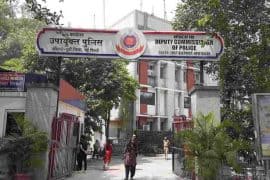In a hyper-communal environment with growing sentiments of ethnic chauvinism, we as a nation seriously need to introspect on what it means to be an INDIAN. The Armed forces provide a handbook on the same with valuable takeaways.
Contrary to an average civilian who is introduced to the concept of Diversity through formal schooling via pedagogues or books, I, owing to the itinerant nature of my Dad’s job in the Indian Army, have been privileged enough to witness this diversity first hand.
A great deal of my understanding of India’s diverse cultural milieu has been shaped because of my Fauji background. A sense of belongingness and a simultaneous appreciation of diverse cultures, ethnicities, religions and languages came to me through the Indian Military traditions. The entire Fauj is a profoundly diverse community, a huge old military family – bereft of divisions on the basis of caste, class, creed or religion; united by shared love for the nation and the army community.
Originally, I am from Punjab, but today, I can easily sing the Bengali prayer “Amader Bhalo Karo Hey Bhagwan”, that I learnt while dad was posted in Siliguri; I have successfully memorised the Assam Regimental song “Badlu Ram ka Badan Zameen ka Neeche hai” line by line, I know it by heart; I know some amazing Malyalam slangs that I was taught as a kid by my neighbours; and last but not the least, I can count from 1-20 in Sinhalese, something that I was taught by my Sri Lankan acquaintances who had accompanied their fathers for a course at Mhow, MP. Needless to say I have seen, heard, read, experienced, internalized and celebrated the Diversity our country has to offer ever since I was born.
Sentiments of respect and embracement towards all faiths, is demonstrated in the fact that most cantonments have a common worship place – Sarv Dharma Sthal, for people from all beliefs. We celebrate Janmashtmi, Holi, Eid, Gurupurab, Christmas – all with equal fervor and gaiety. Greeting with a casual “Ram-Ram”, Hindu soldiers praying in Gurudwaras of Sikh regiments, Sikh and Hindu soldiers paying homage during Eid festivities in a Grenadier regiment mosque seems very organic to us. Baba Harbajan’s shrine en route to Nathula pass generates an unmatched vigour in soldiers from all communities, alike. The Rajput regiment’s war cry, “Bol Bajrang Bali Ki Jai”, the Sikh regiment’s “Jo Bole So Nihal, Sat Sri Akal” or the Maratha regiment’s “Har Har Mahadev”, send shivers down the enemy’s spine when proudly uttered by every soldier of the Paltan, irrespective of their religion.
We as a nation today direly need to derive inspiration from the secular ethos the armed forces have stood for. The barracks of unity and a shared love for the motherland have for long safeguarded the cantonments from all sorts of pernicious ethno-communal propaganda. After bravery and patriotism, one can definitely learn this embracement of plurality from the best.
Image Credits: Ed Times
Rubani Sandhu





Comments are closed.